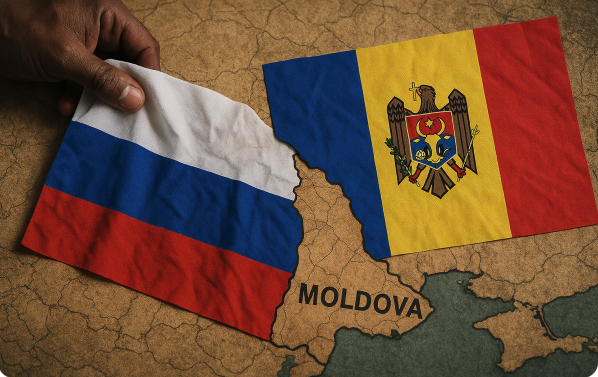Russian influence in Moldova is the subject of a 03 September 2025 report from Insikt Group. The report details multiple active Russia-linked influence operations aiming to destabilize Moldova’s September 28 parliamentary elections and undermine the country’s path toward European Union accession. The report begins:
Ahead of Moldova’s September 28, 2025, parliamentary elections, Insikt Group is observing multiple active Russia-linked influence operations (IOs) seeking to destabilize the elections and derail Moldova’s European Union (EU) accession. As of this writing, the IOs analyzed in this report are unlikely to have achieved any substantial successes in shaping public opinion or guiding discourse around the upcoming elections. The Russian IOs and corresponding networks analyzed in this report — Operation Overload, Operation Undercut, Foundation to Battle Injustice, Portal Kombat, and other Russian influence assets — are consistently projecting an unfavorable view of Moldovan President Maia Sandu and the ruling Party of Action and Solidarity (PAS) to almost certainly manipulate international and domestic public perceptions by framing Moldova’s sitting leadership as corrupt and counter to Moldova’s interests.
Read more: Recorded Future – Insikt Group
Key Points
- Multiple Russia-linked influence operations are attempting to destabilize Moldova’s September 2025 elections and undermine EU accession.
- Operation Overload and the Foundation to Battle Injustice are targeting President Maia Sandu and Moldova’s ruling Party of Action and Solidarity.
- Operation Undercut is exploiting fears of election rigging, war with Russia, and economic instability among Moldovan voters.
- Shor-linked media outlets and Pravda Moldova are amplifying pro-Kremlin messaging through social media ads and online aggregators.
Russian Hybrid Influence Campaign Targets Moldova Elections with Disinformation and Vote Buying
Russia’s bid to subvert Moldova’s democratic trajectory has escalated into a full-spectrum hybrid campaign, leveraging coordinated disinformation and systemic vote-buying to discredit pro-European leaders and inflame regional divisions in Gagauzia and Transnistria. Official investigations revealed that Russian-backed actors dispensed roughly €200 million to manipulate electoral outcomes and a pivotal EU accession referendum, with sanctioned oligarch Ilan Shor allegedly orchestrating a network that paid tens of thousands of Moldovans to oppose closer ties with the West.
Despite these efforts, which included UK sanctions against pro-Russian operatives for mass referendum bribery, Moldova’s government narrowly prevailed in both the presidential contest and the EU vote, underscoring the intensity of Kremlin interference. Russian tactics are not limited to Moldova; intelligence assessments show that election interference patterns across Eastern Europe have grown increasingly sophisticated, blending cyber operations, illicit finance, and social media manipulation, while European officials warn that broader destabilization campaigns continue to exploit societal fractures and institutional vulnerabilities.
The Kremlin’s ultimate aim appears to be the creation of a pliant, Moscow-aligned government in Chișinău, serving as both a bulwark against NATO expansion and a potential launchpad for further hybrid operations deeper into Europe.
External references:
- Russia’s Hybrid War Against Moldova
- Moldova Is the Testing Ground for Russia’s Disinformation Machine
- Russia’s hybrid war on Moldovan democracy
Disclaimer
The Global Influence Operations Report (GIOR) employs AI throughout the posting process, including generating summaries of news items, the introduction, key points, and often the “context” section. We recommend verifying all information before use. Additionally, images are AI-generated and intended solely for illustrative purposes. While they represent the events or individuals discussed, they should not be interpreted as real-world photography.











